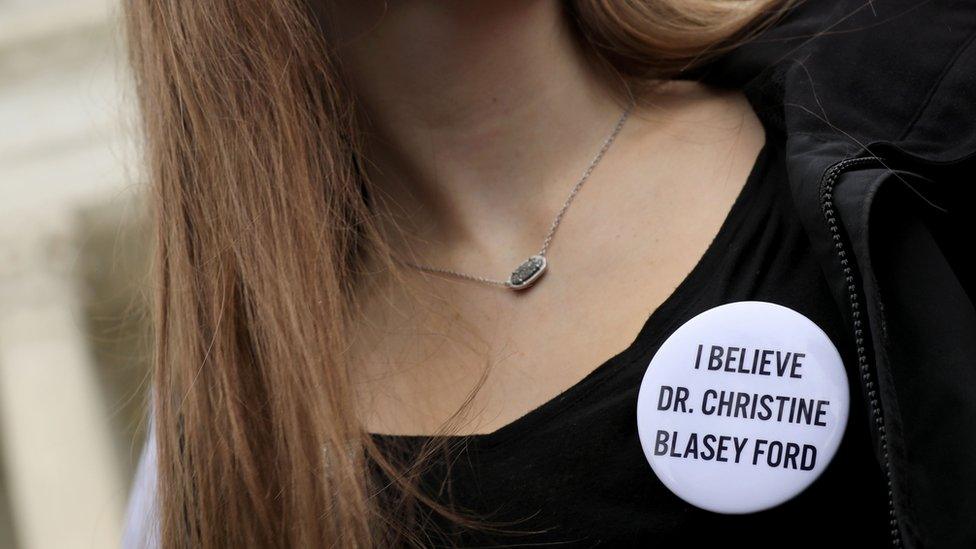Christine Blasey Ford's testimony through the eyes of a survivor
- Published
Christine Blasey Ford said she was "100%" sure Brett Kavanaugh assaulted her
Reactions to the testimony by Dr Christine Blasey Ford have split. Some see her as a hero, others as a political pawn. What writer Liz Spikol saw was a fellow sexual assault survivor describing the worst day of her life.
I was raped at 17.
Most days now, I only think about it once or twice. But some days are harder.
Days like yesterday, when Christine Blasey Ford, the woman who accused Brett Kavanaugh of sexual assault, testified in Washington, DC.
I was at work, in an ice-cold conference room, sitting alone, watching Ford on one screen while I worked on another.
I could barely breathe watching as she struggled to maintain her composure in an antagonistic environment where she was expected to re-live one of the hardest days of her life.
While Senate Judiciary Chairman Chuck Grassley dithered about procedure, and Democrats indulged in personal grandstanding that ate up precious minutes, I was watching her. It pained me to see her obvious anxiety.
The way she'd tilt her head sometimes like it was too heavy for her neck. The way she eked out a smile and was carefully solicitous, like a good girl should be.
Maybe other people saw a woman answering questions. I saw struggle, pain, a tightrope walk.
I know that walk, too.
Alumni of Ford's school: 'We believe her'
To give you some context, I was a happy kid before it happened.
I grew up in a two-parent home in my beloved hometown of Philadelphia, went to schools I loved, won a slew of academic awards and spoke at my high school graduation. I went to the prom with my extremely nice long-time boyfriend, who lived around the corner. I got into my first-choice college and was headed there with my best friend.
We were about to begin the rest of our lives.
Then I went to the Dominican Republic for a language-immersion programme and moved in with a local family. A few weeks after I got there, one of the men in the house raped me.
Afterwards, he was apologetic. "You raped me," I said to him.
"I know," he said. "I'm sorry."
Still, I was overwhelmed with shame and a feeling that I had done something terrible, something unforgivable. I felt dirty and broken. I told only one person, a fellow American classmate. He wanted to tell our teachers but I swore him to secrecy. I didn't want them to know I was so bad.
What followed was a spiral of shame and nightmares and hallucinations and rages.
When I returned to the US, the PTSD (post-traumatic stress disorder) got worse. My parents didn't understand what happened. They'd put their somewhat goofy, chatty, cheerful child on a plane and got back a sullen teenager who barely spoke.
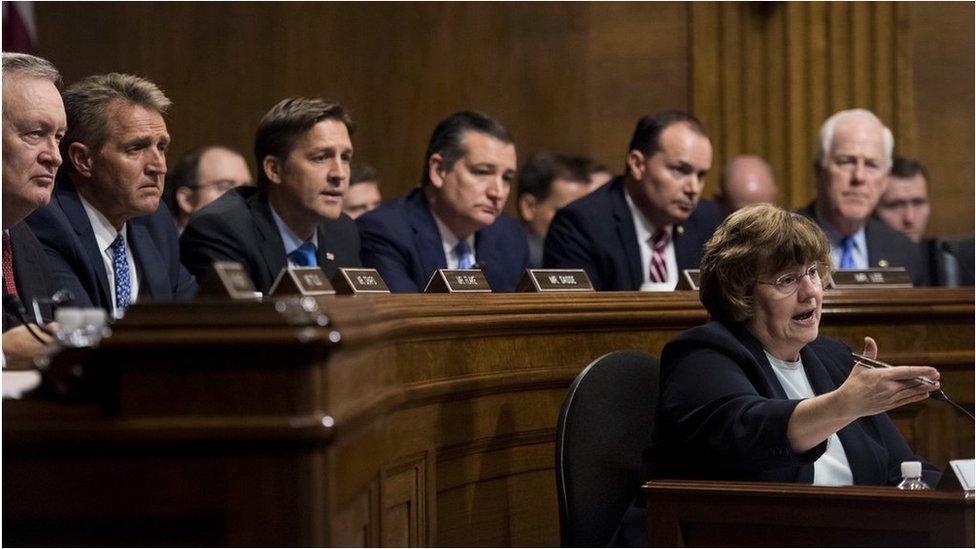
Rachel Mitchell asks questions on behalf of the Republican senators
I spent my 20s in and out of psychiatric hospitals, on dozens of medications. My mental illness came to define me. I was unable to work, and living off of Social Security disability.
Slowly, gradually, I crawled out of my hole. It took years of work but I did eventually recover. I live a full life now, with gainful employment and a very cute dog. But the trauma is still with me in so many ways. The rape changed my life entirely. It's the stone in your shoe you can never remove.
Why it can take sexual assault allegations years to come out
Although I wrote a column for 10 years about mental health, I've only recently spoken publicly about the event that triggered my years in the wilderness. I wrote about it once in 2003 and then, after #MeToo, I felt emboldened and obliged to come forward again.
It has seemed a matter of urgency to explain why women don't always report immediately. I'm trying to get out there so people understand the survivor perspective better.
But like any survivor of trauma, speaking about the experience is not easy to do. When I talk about my rape publicly, I have to do something I did when I was being attacked - dissociate.
I leave my body, thinking I'll come back later when there's less danger. I hear a voice saying the words, and I know they're my words, but it's not safe, it's not safe. When I come back, it feels as if I'm being punished for my disclosures just as I thought I would be when I was 17 and afraid to tell.
After I talk about it, I spend days in a kind of limbo, here and not-here, crying one minute, laughing the next. I lie in bed, thinking, "I'm broken. Why am I still broken?"
So yes, re-living traumatic experience comes at a price. Veterans, survivors of natural disasters and mass shootings, victims of childhood sexual abuse - anyone who speaks out about what happened knows that price. Christine Blasey Ford knows this too - or if she didn't, she knows it now. I hope she has a good support system.
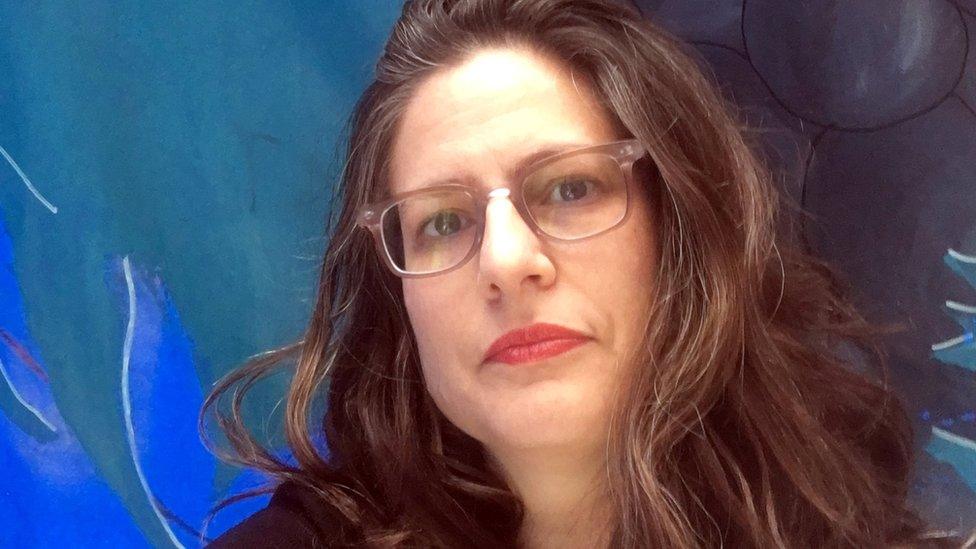
Author Liz Spikol
The circus going on around her seemed especially ridiculous knowing the kind of pain she was in, the effort she was making. The GOP had flown in a token woman to ask Blasey Ford questions, a gesture that proved, once again, that the all-male rank of Republicans see women as symbols rather than human beings. Meanwhile, every second that went by while some politician thanked Blasey Ford - so that he'd have a clip for his next campaign ad - she was hurting.
When I watched Senator Richard Blumenthal's chin quiver as he proclaimed himself thankful, I just felt angry. The male prerogative of it all: We approve. We thank you. And now we're going to keep talking and signalling our solidarity for minute after minute while you sit there dying.
If either side really valued her contribution and respected her pain, they would have let her get the hell out of there and go home. Sitting upright in that room was a huge accomplishment. Waiting through all the partisan blather was heroic.
Yesterday was an incomparably hard day for me and for so many women who watched the proceedings not as outsiders, but as participants. We were up there with her, feeling the seconds tick by as if our lives were at stake. We'll need a few days to recover.
Go easy on us. Go easy on her. It is a bumpy road we travel, and the potholes are treacherous.
Author Liz Spikol is a Philadelphia-based writer and editor.
- Published28 September 2018
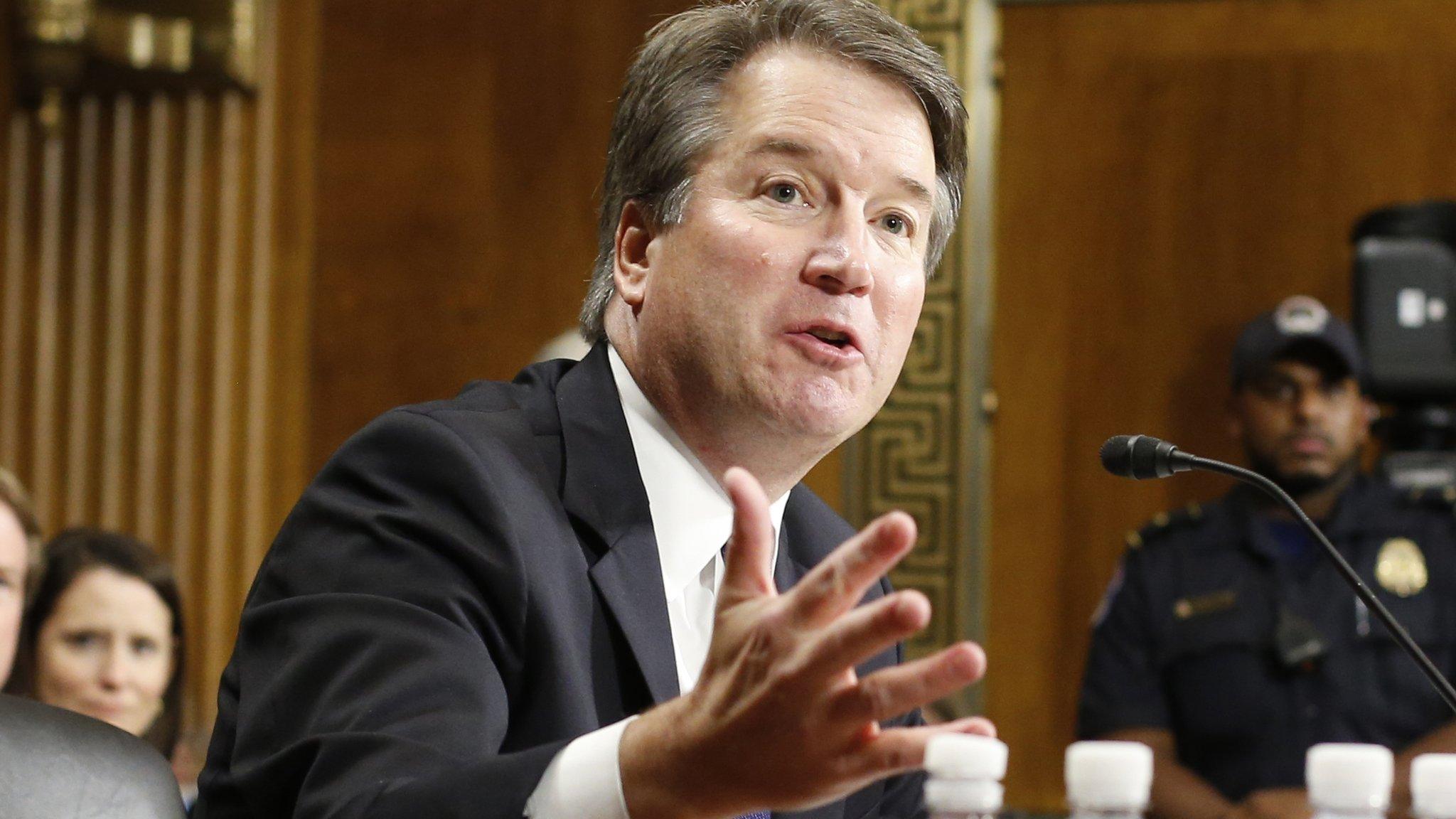
- Published27 September 2018
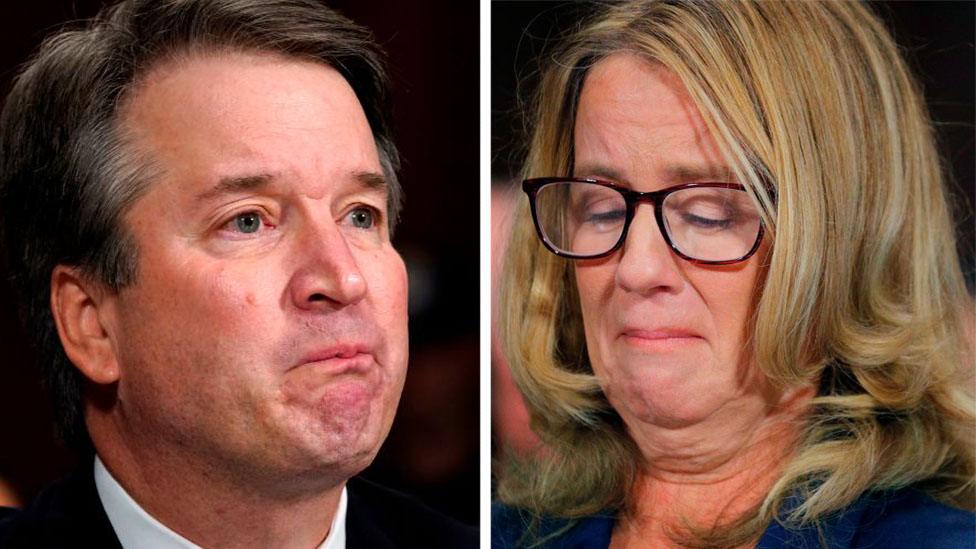
- Published5 October 2018
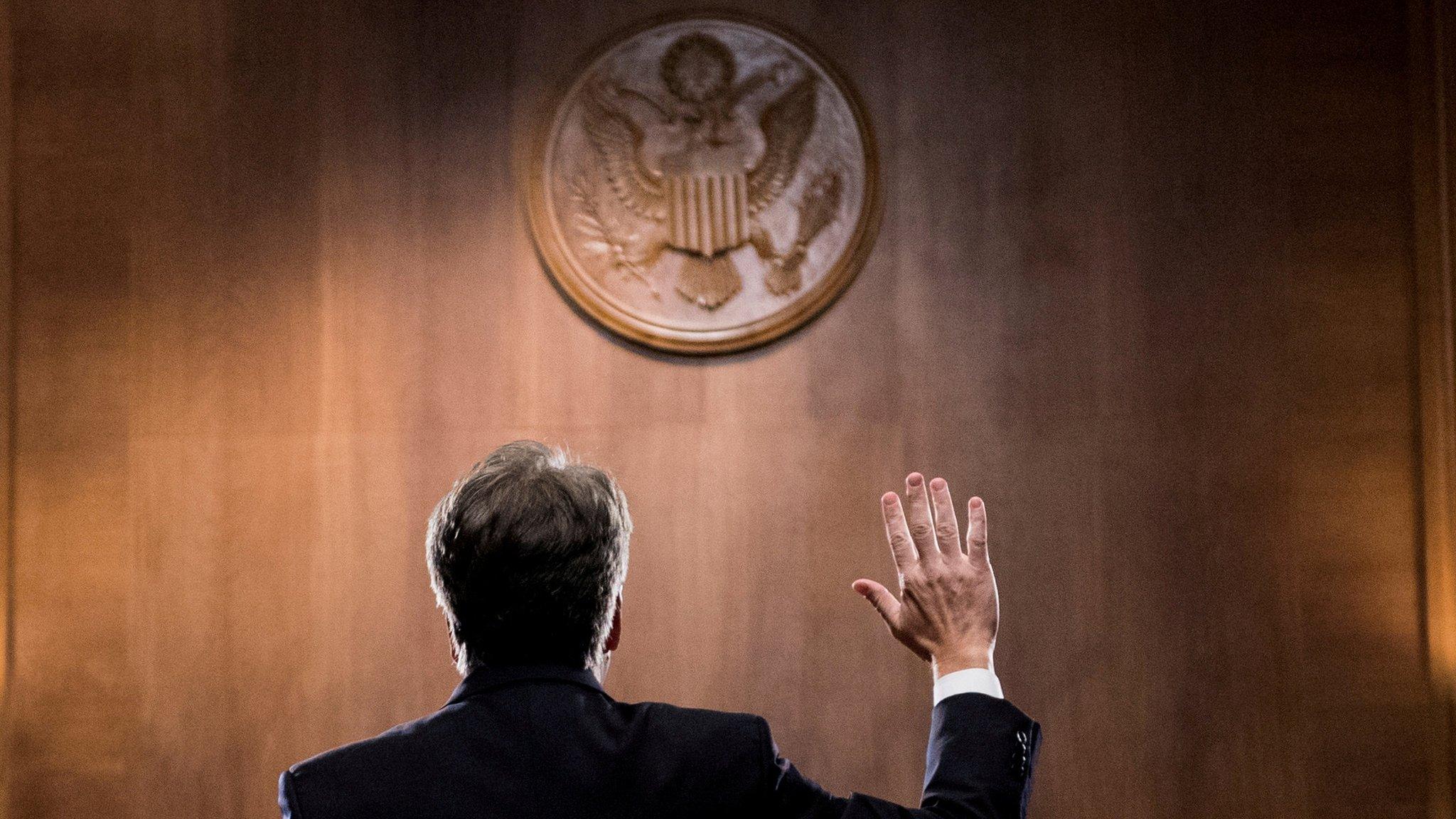
- Published26 September 2018
